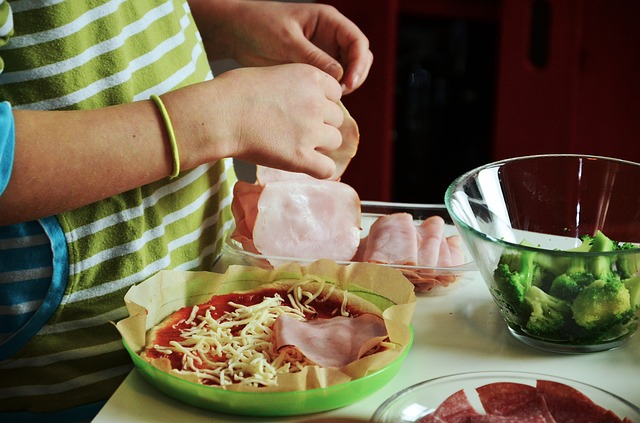Into The Fire: Why You Should Be Cooking With The Kids
Cooking with children in the kitchen often sounds like a recipe for disaster. The idea of relinquishing control and letting your little prodigy loose with the wooden spoon may feel like you’re going to be using a mop forever. However, deciding to teach your children to cook is a benefit for them, and an even bigger one for you. Cooking is a big part of our lives: after all, we all must eat! It’s something of an art, to be able to see a table of ingredients and turn it into something delicious, and sharing that with our children is the way to carry recipes and dishes into the future. It’s also a fantastic way to bond and enjoy their company. By teaching the kids to cook, you’re passing valuable knowledge on that they may not get in their school environment.
The more educated that our children are about food, the better they will eat. Starting food education early is an important part of a child’s development and influences for the future. Cooking is a basic life skill, and ensuring your children can be comfortable enough to make a good meal from few ingredients will make sure that their creative side is always tuned in. If your children know how to cook, they are able to fend for themselves at an early teen age. By exposing the kids early on to cooking with fresh ingredients, you can guarantee your children will have a mature palate that is used to tasting a variety of foods. Most children go through a fussy food stage – which you can read about here. Picking at their usual meals and pushing them around the plate is normal at different life stages. This is because their taste buds and palate mature over time and change, so foods they once loved taste different to them.
By taking the time to educate them on what you have cooked, teaching them to do it themselves, you are helping them to become familiar with nutritious food and have them less accustomed to processed foods. So, how you can make their cooking experience one to remember? How can you impart your culinary wisdom so that they will always know the right way to cook everything?
- Always use the right equipment. Head over to websites like http://www.stonefryingpans.com to discover the best equipment to use for your cooking lessons with the children. Being able to use less oil when cooking food means that the ingredients you’re cooking with stay fresh and healthy while you’re making them; an excellent lesson to teach.
- Helping the picky ones. Kids who cook their own food are far more likely to try what they make. They know the ingredients aren’t scary ones and they can taste their food and their achievement.
- Education matters. In a world where we want everything in an instant, that usually includes our food. Microwaves used to cook faster, instant pastas and noodles and instant fast food. Cooking with the children gives them the chance to learn about nutrition and the why the food choices they make will impact them now and in the future. It’s important to explain that the reason instant foods are so instant, is because of the chemicals and the salt in them that keeps them preserved. Food education is grossly under-done in schools because it’s not considered a core subject. Taking the moment to teach your child about where their food comes from is important.
- Boost confidence. Children thrive in an environment where they feel accomplished. Teaching them how to make a meal and allowing them to then make it for you can give them a sense of pride and achievement that you may one day underestimate.
- Quality time. In the kitchen, you get to watch your children come to life and learn new things under your watchful eye. You can spend quality time teaching them something new and discussing their day. There are many ways to bond and you can read about these here. Cooking is relaxing and so you can get in some meaningful conversation that you may not get during the day.
If you take the time took cook with your children, teach them about food and show them how things are made, you are showing them that you are interested in their learning and want to teach them a skill they may not learn elsewhere. It’s not just food education; it’s science, weighing, problem-solving and taking in other cultures. There’s a whole medley of things they can learn by your side.

